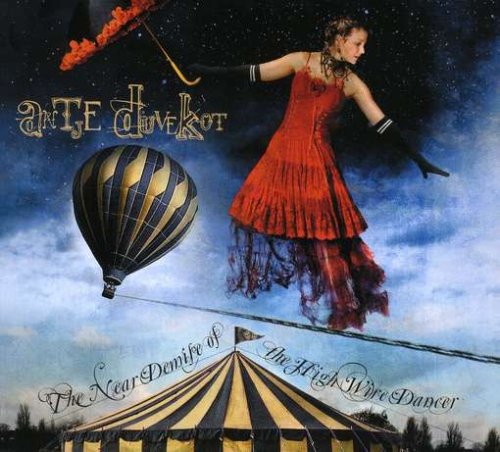There is only one better thing than music - live music.
-Jacek Bukowski
-Jacek Bukowski
I remember the first time I heard Antje Duvekot’s music; I was driving home from work one evening, listening to Emerson’s radio station, WERS, known for playing a decent mix of primaril indie, early rock, and lesser known singer/songwriters. The song was “Scream,” and her voice reminded me of Leah Nash (of “Sixpence None the Richer” and “Delirium,”) and a little Natalie Merchant and Ani DiFranco, but her lyrics reminded me of poetry. Her words have a way of depicting imagery that marries so beautifully the sound of her voice and music that I was in awe.
“You are the fisherman, I am the storm
You become a baby when I hold you in my arms
You are a vessel floating upon my sea
But my waves are crashing, and I cannot hear you scream.”
You become a baby when I hold you in my arms
You are a vessel floating upon my sea
But my waves are crashing, and I cannot hear you scream.”
The only other songwriter that had that kind of effect on me was a young woman I had the pleasure of meeting at a conference for church musicians in Indianapolis
I was even more intrigued by Antje’s music when I learned that she lives right here in my own backyard – Somerville , MA Marblehead
The album takes its name from images in the lyrics to both the first and 8th tracks, although there’s no unifying thematic thread linking the whole work into a concept album so to speak. “Vertigo” is a soft waltz with a little country influence – mandolin and weeping steel guitars color this melancholy tune. This continues into the second song, “Ragdoll Princes and Junkyard Queens,” which is a little more upbeat but still somewhat folksy and dark in tone. “Long Way” is the poet’s journeysong, in the vein of Simon and Garfunkel’s “Homeward Bound” and “America
“Lighthouse” delivers a beautiful 6/8 piano ballad, continuing the trend of bittersweet melancholy that pervades the album. The words speak of loneliness and nostalgic memories. (As a side note, what is it about hearing other people sing about depression and sadness that makes us feel all warm and fuzzy inside? Does that happen to everybody else or is it just me?) “Dublin Boys” is the first track that feels a little out of place; musically it is consistent with the tone and feel of the complete album, but she’s singing a farewell to the town of Dublin Somerville Vermont and was born in Germany
“The Bridge” takes a new turn on the album, introducing the first electric guitars so far. Not to the point where it’s jarringly different from the rest of the CD. Actually, it seems to function as a bridge, so to speak, easing the way into “Scream,” the closest thing to any kind of folk rock on this particular offering. “Scream” speaks to me both lyrically (see the chorus quoted above) and musically as the most powerful offering on the album. Texturally, it’s more complex then the rest of the songs, with layers of breathy harmonies and more active percussion beats that the remainder. If you listen to one song from this album, make it this one.
“Reasonland” is a bit of a letdown. It doesn’t maintain the energy established leading into it. To the contrary, I can almost hear the chorus reworked into a hymn-style chorale; there’s a reverence to it that I don’t get from the earlier tracks. As mentioned earlier, this song briefly references the “high wire” images so prominent in the opening tune. “Coney Island ” is the simplest, but perhaps also the most beautiful song here. Just the singer and her guitar, with a waltz-y “boom-chick-chick” reminiscent of the sound of the calliope found in those bygone days of the Coney Island boardwalk.
“Merry Go Round” is an interesting choice to end the album on; it’s brighter and happier than everything that has gone before. Texturally, the electric guitar returns, but the drums and all the vocals are overdubbed to lend a thickness to this feel-good, pub style sing-along. The music is simple; again, something you can latch onto and be singing along without knowing it by the end of the song. Your head will keep bobbing to it even after the song is over. It may replace “Scream” as the single to listen to if you don’t buy the whole album.
I knew I wanted to include this artist when I conceived this project, and have been itching to get to this CD for a while now. It does not disappoint in the slightest. If you’re in the Boston Boston
Tomorrow – Wagner: Das Rheingold
Next week – Nevermind (Nirvana)

Some really great music--thanks for introducing me to it!
ReplyDelete